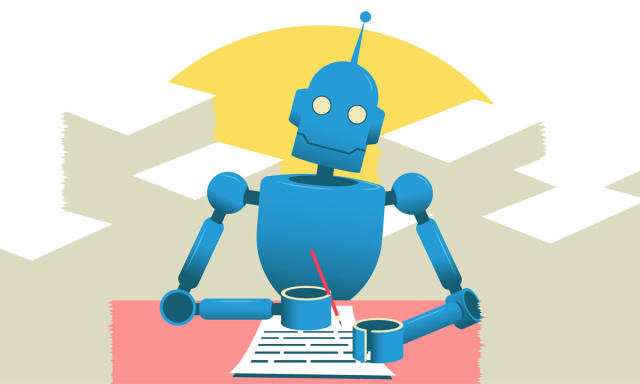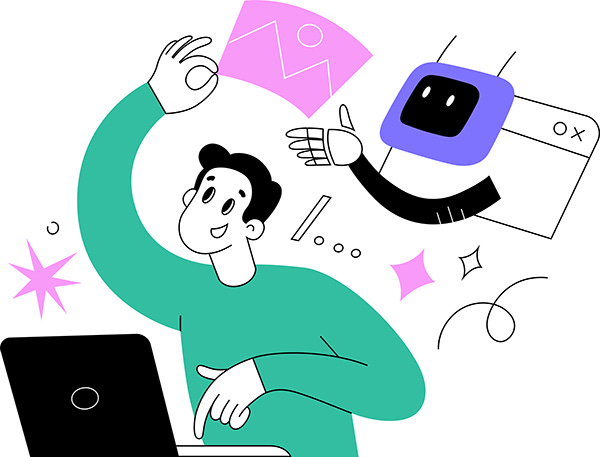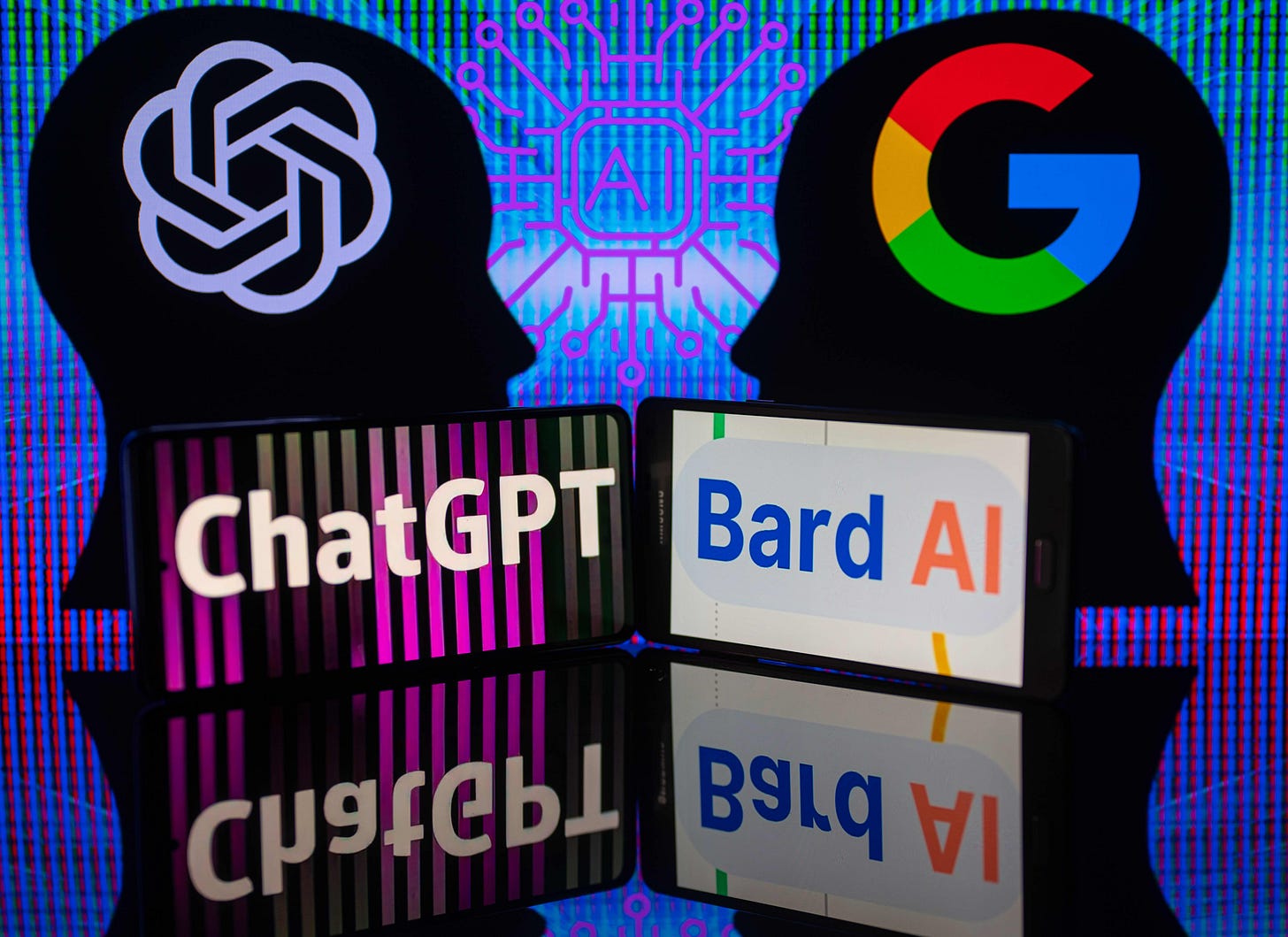Redefining Education with ChatGPT🎓🤖
AI in Education: Friend or Foe?
AI's role in education is sparking debates, but it's a revolution we can't ignore. With advanced AI chatbots like ChatGPT, concerns about cheating are valid, but they shouldn't overshadow the true potential: to transform and modernize education. 🎓💻
Schools, Colleges, and ChatGPT: A Complex Relationship
ChatGPT's arrival in the education landscape was met with mixed emotions. While some educators and institutions embraced it as a potential aid for students, others were wary of its academic integrity implications. As the dust settles, we're beginning to see a more nuanced picture. 🏫📚
"While the tool may provide quick and easy answers to questions, it does not foster critical-thinking and problem-solving abilities, which are crucial for academic success and life", said Jenna Lyle, a spokesperson for the New York City Department of Education.
Initial Hysteria and Fear
Back in the day, when ChatGPT first made its entrance, folks were freaked out, and you know what, it's not that surprising. This AI can whip up a super smarty-pants essay on anything from quantum physics to Shakespearean literature. And guess what? It doesn't just copy and paste stuff; it writes unique stuff every time, even if you give it the same starting point. It's like a human essay machine that can't be busted for cheating, and that set off all the alarm bells. People were worried that ChatGPT would mess up the whole idea of figuring out if students really get what they're learning. It was like an education earthquake! 🌍📚😱
The Silver Lining
When OpenAI dropped ChatGPT into the mix in November 2022, schools freaked out big time. It was like a global panic button went off. Everyone was screaming, "It's the end of fair play in education!" Districts were blocking websites, teachers were shaking their heads, and students were feeling like they'd been caught red-handed. But hold up, it's not all doom and gloom. Fast forward three months, and we're looking at ChatGPT through a different lens. Turns out, it might just be the classroom buddy we never knew we needed! 🎒✏️. Instead of being a student's sneaky sidekick, ChatGPT is turning into an education superhero. 🦸♀️ Teachers are realizing it can make lessons fun, teach us how to spot fake news, customize our learning journey, and take some weight off their shoulders. Plus, the cool ed-tech companies, such as Duolingo and Quizlet are already teaming up with ChatGPT to make education way cooler. So, what started as an "Uh-oh, AI's gonna mess up our school life" moment has turned into a "Wow, AI might just make school awesome!" situation. 🤯📚🤖
Remember the big ChatGPT panic?
It all started with the AI acing tests left and right. When OpenAI rolled out GPT-4, the powerhouse behind ChatGPT, it was like an academic superstar. But, looking back, the rush to shut it down was like pressing the panic button too soon. Sure, ChatGPT is one brainy piece of software, but the initial freak-out might have been a tad over the top. 🚨🤯📚As Jessica Stansbury, director of teaching and learning excellence at the University of Baltimore, puts it, "We panicked. Instead of thinking, 'Okay, it's here. How can we use it?' we had the wrong conversations."
Embracing change
Change isn't always easy, and it's natural to feel a little fear when something new comes along. But let's not get stuck in that fear. Instead, let's think about what's best for our students. Teachers these days are more than just keepers of knowledge. They're like navigators, helping students sail through the vast sea of information that's out there on the internet. 🌊🧭📚 AI like ChatGPT can actually be a super helpful tool for building critical thinking skills. Imagine this: teachers could use the chatbot to come up with arguments on different subjects and then ask students to evaluate and rework them. It's like honing in on those crucial skills without all the distraction of coming up with the argument from scratch. 🤖💭🤔
"Knowing the words to use in a prompt and then understanding the output that comes back is important", says David Smith, a professor of bioscience education at Sheffield Hallam University in the UK.
AI chatbots are flipping the script on teaching
You know, with AI chatbots like ChatGPT in the education scene, things got pretty wild at first. Teachers and schools were like, "Whoa, these bots can ace tests, and that's not cool!" But as we let the dust settle, it turns out, these chatbots could actually be a game-changer. They're not just for cheating; they're like the ultimate study buddies. Let's dive into the chatbot frenzy in education! 📚🤖 🚀💡AI isn't perfect, and it can sometimes mess things up. But guess what? We can totally turn those flaws into learning moments. Teachers can give ChatGPT a spin, spot where it's off, and help us understand media literacy, more awareness about biases and inaccuracies in text. 🤖🧐 Even better, teachers should use ChatGPT prompts in class and ask students to challenge the answer and provide a deeper analysis regarding ChatGPT’s reductionist view regarding a topic.💡📖
The future of ChatGPT in education
We know it can be a game-changer, but we've got to use it wisely. Teachers and students need some ground rules to make sure it's a helpful sidekick, not a crutch. 💡🤖 📚🚀
"We have to withhold some of our quick judgment", says Richard Culatta, CEO of the International Society for Technology in Education (ISTE). "We need to get comfortable kicking the tires on this thing."
In a nutshell, AI in education is an opportunity, not a threat. AI chatbots like ChatGPT can help, but they can't replace what makes us human. Educators can use AI to supercharge teaching, all while nurturing students' humanity. It's not the end; it's a new chapter! 🚀🤖📚
Suggested Reads:
🚀AI Superstars Unite at UK Summit: Exploring the Cutting Edge of Safety 🚀🤖🔍





